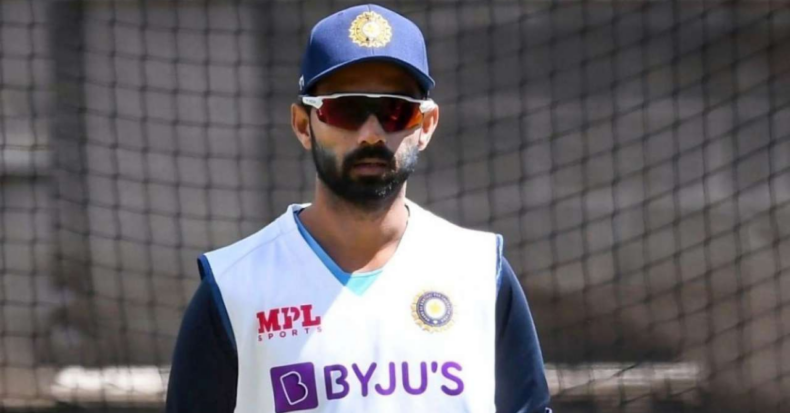Rohit Sharma, the newly appointed T20 captain and regular opener, Rishabh Pant, and pacers Jasprit Bumrah and Mohammed Shami have rested as part of BCCI’s workload management policy. “Virat Kohli will lead the team for the second Test,” BCCI secretary Jay Shah said.
India’s vice-captain Ajinkya Rahane will lead the team in the first Test against New Zealand, starting November 25. Despite this, Kohli will return to lead the side for the second Test in Mumbai, which will take place from November 3 to 7.
In Kanpur, Ajinkya Rahane will captain India, with Cheteshwar Pujara serving as his deputy.
Shardul Thakur remained out of the squad for the T20I series preceding the Tests.
In Rohit’s absence, KL Rahul will open with Mayank Agarwal, while Kohli’s middle-order spot will be played by Shubman Gill or Shreyas Iyer, who has played red-ball cricket but is yet to play Test cricket.
Despite being believed to be next in line for a middle-order berth, Hanuma Vihari has been left out of the squad as a batsman through injury, and Vihari helped save the Sydney Test in January.
In Pant’s absence, Wriddhiman Saha will play his first Test since India’s defeat in Adelaide in December 2020.
Also included in the squad is Andhra wicketkeeper-batsman KS Bharat. In first-class cricket, Bharat has scored 4283 runs from 78 matches at an average of 37.24, with nine hundred, including a top score of 308 against Goa in February 2015. In the Ranji Trophy, it was the first triple-ton by a wicketkeeper-batsman.
Recently, he had a breakthrough season in the IPL with Royal Challengers Bangalore, mainly batting at No. 3 and scoring 191 runs at a strike rate of 122.43, including a match-winning 78 not out against Delhi Capitals.
Because of BCCI’s workload management policy, the rest of India’s T20 captain Rohit Sharma, wicketkeeper Rishabh Pant, and pacers Jasprit Bumrah and Mohammed Shami have taken significant time off from the game.
Jayant Yadav and Shreyas Iyer made their Test debuts.
A three-match T20 series precedes the Test series.
India’s Test squad:
Ajinkya Rahane (Captain), KL Rahul, Mayank Agarwal, Cheteshwar Pujara (vice-captain), Shubman Gill, Shreyas Iyer, Wriddhiman Saha (wicketkeeper), KS Bharat (wicketkeeper), Ravindra Jadeja, R. Ashwin, Axar Patel, Jayant Yadav, Ishant Sharma, Umesh Yadav, Mohammed Siraj, Prasidh Krishna.
Ajinkya Rahane:
In his second Ranji season, Ajinkya Rahane scored 1089 runs in Mumbai’s 38th Ranji title win. There have been only 11 players who have scored 1000 runs in a Ranji season, which puts his efforts into perspective.
Rahane’s move to the Mumbai Ranji team was logical – he had played for them at all levels and was always regarded as a potential Mumbai player, if not more. In the 2007-08 Duleep Trophy, he made 172 runs against an England Lions attack consisting of Graham Onions, Monty Panesar, Steve Kirby, and Liam Plunkett.
The innings came after Mumbai cricket followers wrote him off as a promising talent but only fit to make a quick 50. He proved them wrong two years later.
He hit three hundred in the 2009-10 and 2010-11 seasons of the Ranji Trophy. After scoring two centuries in the Emerging Players Tournament in Australia, he made the India ODI squad for the tour of England in 2011.
After months of sitting on the bench and travelling with the Test squad, Rahane made his debut in Delhi in March 2013.
Rahane made his maiden Test century against New Zealand in the drawn match in Wellington after scoring fifties in each innings in Durban. As a result, Rahane set up India’s first victory at Lords after 28 years with a solid 103 in the first innings.
Following that, he scored his maiden ODI century at Edgbaston as India wrapped up the series.
He scored the fifties in Adelaide and Brisbane and then 147 runs in Melbourne, establishing himself as a vital cog in the batting department. Rahane achieved another first; his 79 points helped India win their first World Cup match against South Africa.
Ajinkya Rahane’s records:
He is the fifth Indian batsman to score centuries in each innings of a Test. In addition, he has taken the most catches by anyone other than a wicketkeeper in a single Test.













